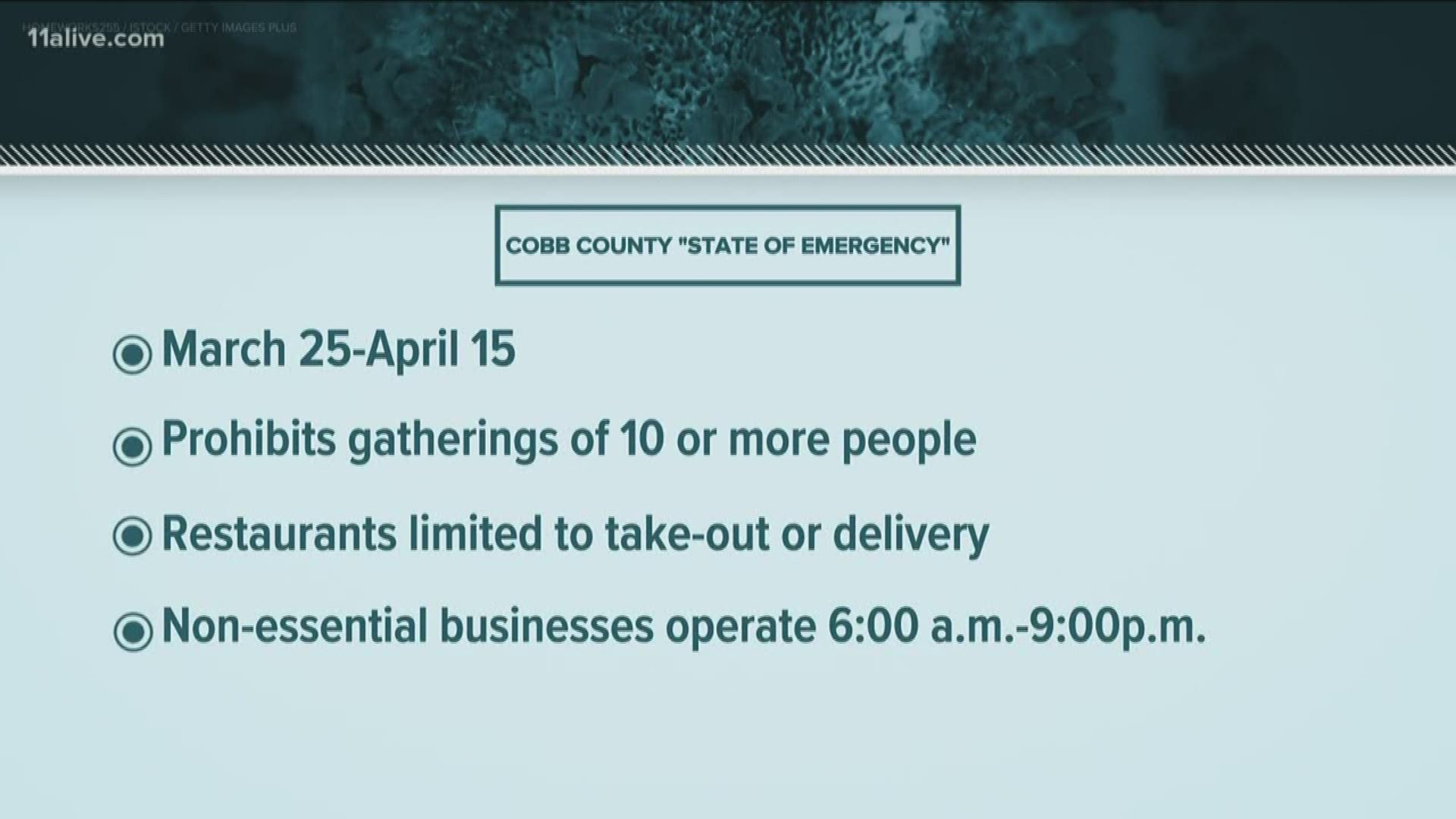ATLANTA — After Mayor Keisha Lance Bottoms announced a two-week stay-at-home order for the City of Atlanta to combat the coronavirus outbreak, it raised a natural first question: "What does this mean for me?"
The order is actually highly detailed, laying out the precise expectations for the city's population of roughly half a million.
Here are the basics you need to know to abide by the order:
What can I do?
The order spells out a number of definitions for "essential activities" you may still engage in:
- To take care of your health needs: The order says people can "engage in activities or perform task essential to their health and safety" or that of the members of their household (including pets!). The order lists examples such as "obtaining medical supplies or medication" and "visiting a health care professional."
- To get stuff you need: The order allows for "services and supplies" you can go get for you and your family that include examples such as "canned food, dry goods, fresh fruits and vegetables, pet supply, fresh meats, fish, and poultry, and any other household consumer products and products necessary to maintain the safety, sanitation and essential operation of residences."
- To exercise: The order says outdoor activities like "walking, hiking or running" are allowed so long as you continue to practice social distancing. To that end, the mayor has kept the BeltLine and city parks open.
- To work, if you work for an essential product or service provider: More on this in a minute.
- To take care of a family member or pet in another household
What places of work are considered essential?
The order specifies a long list of businesses and services that are considered essential. They include:
- Healthcare: It outlines "healthcare operations" to include "hospitals, clinics, dentists, pharmacies, pharmaceutical and biotechnology companies, other healthcare facilities, healthcare suppliers, home healthcare service providers, mental health providers" as well as veterinary/animal care and "home-based care" or "residential facilities and shelters" for seniors, adults or children, including childcare facilities. It specifically does not include fitness and gym facilities.
- Infrastructure: Types of work include the operation and maintenance "public works construction, airport operations, utility, water, sewer, gas, electrical, oil refining, roads and highways, railroads, public transportation, taxi/rideshare, solid waste collection and removal, internet, and telecommunications systems."
- Emergency: Including "all first responders, emergency management personnel, emergency dispatchers, court personnel, and law enforcement personnel."
- Food: The order lists "grocery stores, farmers' markets, farm and produce stands, supermarkets, food banks, convenience stores, and other establishments engaged in the retail sale of canned food, dry goods, fresh fruits and vegetables, pet supply, fresh meats, fish, and poultry, and any other household consumer products (such as cleaning and personal care products.)" It also includes "food cultivation, including farming, livestock and fishing" and businesses that "ship or deliver groceries, food, goods or services directly to residences."
- Charity: Defined as "businesses that provide food, shelter, and social services, and other necessities of life for economically disadvantaged or otherwise needy individuals."
- Media: Defined as "newspapers, television, radio and other media services."
- Gas stations: Also including "auto-supply, auto-repair and related facilities."
- Banks: Also including "related financial institutions."
- Hardware stores and home services: Including "plumbers, electricians, exterminators and other service providers who provide services that are necessary to maintaining the safety, sanitation and essential operations of residences."
- "Lodging businesses": Including places like hotels, motels and conference centers.
- Mailing and shipping stores
- Office supply stores: Defined as "businesses that supply products needed for people to work from home" or that "supply other essential businesses with the support or supplies necessary to operate."
- "Professional services": Including "legal or accounting services."
- Educational institutions: Only for "purposes of facilitating distance learning or performing essential functions."
- Restaurants: Only for "delivery or carry out."
MORE CORONAVIRUS HEADLINES

